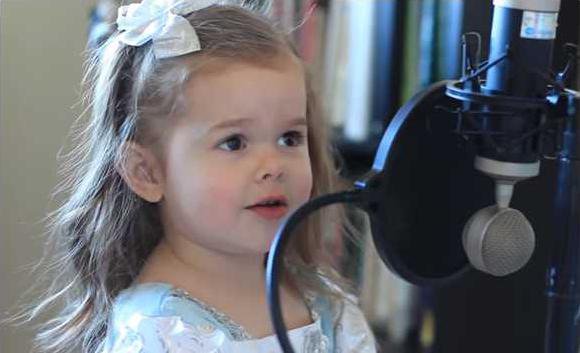On the surface, Claire Ryann Crosby appears to be no different than your average 3-year-old little girl. She has a contagious smile, loves princesses and has seen Pixar's latest movie, Finding Dory.
However, Claire is far from average.
She first hit the scene earlier this year in January when a video of her singing "Part of Your World" from Disney's The Little Mermaid was posted on YouTube. The video now has over 10 million views and little Claire has become somewhat of a Shirley Temple for the digital age.
Claire's latest music video was posted earlier this week and features her singing the song "Reflection" from Disney's Mulan. While wearing her own Mulan dress, Claire showcases her beautiful singing voice as she strolls throughout the Seattle Chinese Gardens.
Not surprisingly, Claire's dad Dave Crosby is also a musician and is the mastermind behind the YouTube videos. In a recent interview with babble.com, Crosby talked about how he decided to share his daughter's talent online after she made an impromptu performance while they were waiting for an oil change.
It made everyone in the waiting room laugh and people were pulling out their cell phones and recording it. It just made everyone there really happy, Crosby said.
Crosby was a big part of one of Claire's recent videos in which the daddy-daughter duo sang "See the Light" from Disney's Tangled. The video was made during a lantern festival in Salt Lake City, Utah.
The future looks bright for Claire, and the Crosby family has said that they will continue making videos with her as the star.








